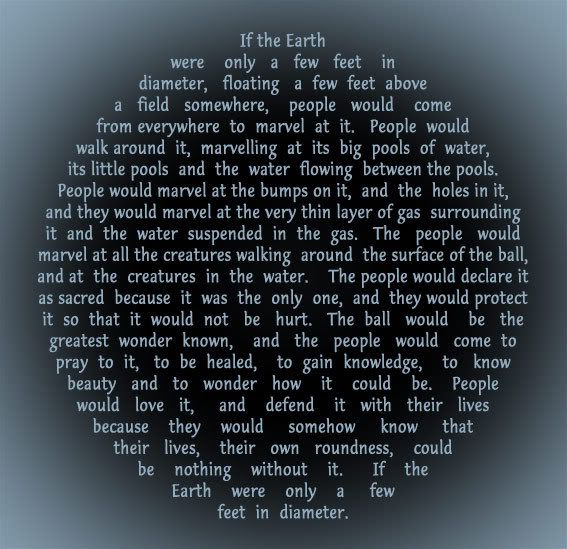Now or never to save the planet: UN
The fourth Global Environment Outlook (GEO-4)Humanity is changing Earth's climate so fast and devouring resources so voraciously that it is poised to bequeath a ravaged planet to future generations, the United Nations warned in its most comprehensive survey of the environment.
The fourth Global Environment Outlook (GEO-4), published by the United Nations Environment Program (UNEP), is compiled by 390 experts from observations, studies and data garnered over two decades.
The 570-page report - which caps a year that saw climate change dominate the news - says world leaders must propel the environment "to the core of decision-making" to tackle a daily worsening crisis.
"The need couldn't be more urgent and the time couldn't be more opportune, with our enhanced understanding of the challenges we face, to act now to safeguard our own survival and that of future generations," GEO-4 said.
The UNEP report offers the broadest and most detailed tableau of environmental change since the Brundtland Report, 'Our Common Future', was issued in 1987 and put the environment on the world political map.
"There have been enough wake-up calls since Brundtland. I sincerely hope GEO-4 is the final one," said UNEP executive director Achim Steiner.
"The systematic destruction of the Earth's natural and nature-based resources has reached a point where the economic viability of economies is being challenged - and where the bill we hand on to our children may prove impossible to pay," he added.
Earth has experienced five mass extinctions in 450 million years, the latest of which occurred 65 million years ago, says GEO-4.
"A sixth major extinction is under way, this time caused by human behaviour," it says.
Over the past two decades, growing prosperity has tremendously strengthened the capacity to understand and confront the environmental challenges ahead.
Despite this, the global response has been "woefully inadequate," the report said.
The report listed environmental issues by continent and by sector, offering dizzying and often ominous statistics about the future.
Climate is changing faster than at any time in the past 500,000 years.
Global average temperatures rose by 0.74 degrees Celsius over the past century and are forecast to rise by 1.8 to 4 Celsius by 2100, it said, citing estimates issued this year by the 2007 Nobel Peace co-laureates, the Intergovernmental Panel on Climate Change (IPCC).
With more than six billion humans, Earth's population is now so big that "the amount of resources needed to sustain it exceeds what is available," the report warned, adding that the global population is expected to peak at between eight and 9.7 billion by 2050.
"In Africa, land degradation and even desertification are threats; per capita food production has declined by 12 per cent since 1981," it said.
The GEO-4 report went on to enumerate other strains on the planet's resources and biodiversity.
Fish consumption has more than tripled over the past 40 years but catches have stagnated or declined for 20 years, it said.
"Of the major vertebrate groups that have been assessed comprehensively, over 30 per cent of amphibians, 23 per cent of mammals and 12 per cent of birds are threatened," it added.
Stressing it was not seeking to present a "dark and gloomy scenario", UNEP took heart in the successes from efforts to combat ozone loss and chemical air pollution.
But it also stressed that failure to address persistent problems could undo years of hard grind.
And it noted: "Some of the progress achieved in reducing pollution in developed countries has been at the expense of the developing world, where industrial production and its impacts are now being exported."
GEO-4 - the fourth in a series dating back to 1997 - also looks at how the current trends may unfold and outlines four scenarios to the year 2050: "Markets First", "Policy First", "Security First", "Sustainability First".
After a year that saw the UN General Assembly devote unprecedented attention to climate change and the Nobel Peace Prize awarded to the IPCC and former US vice president Al Gore for raising awareness on the same issue, the report's authors called for radical change.
"For some of the persistent problems, the damage may already be irreversible," they warned.
"The only way to address these harder problems requires moving the environment from the periphery to the core of decision-making: environment for development, not development to the detriment of environment."
- AFP







No comments:
Post a Comment